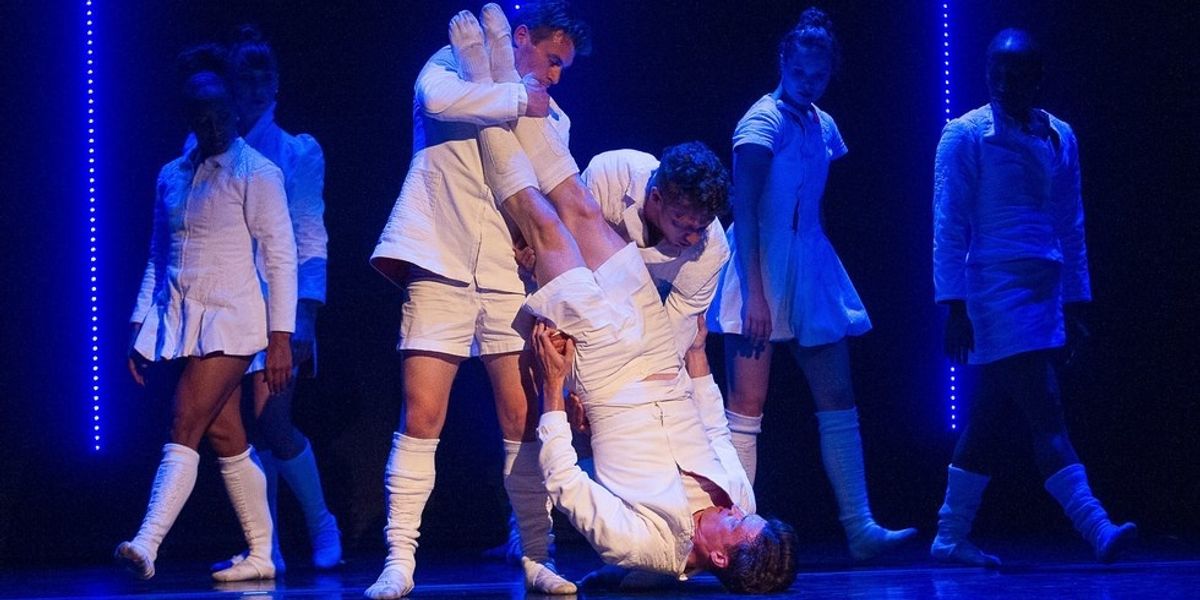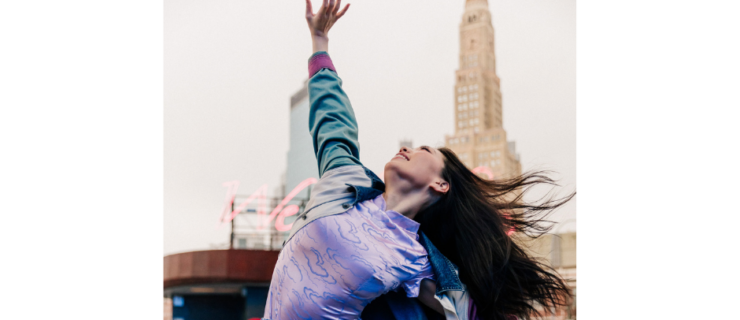Trey McIntyre's New Documentary Delves Into Why His Company Closed
“The art was telling me that things had to change. And they had to change big. Something I created needed to die off. When the company was at its height, when it was at its most successful, I closed it down.”
These puzzling words are spoken by choreographer Trey McIntyre in Gravity Hero, his new documentary, which unpacks the rise and fall of his wildly successful dance company, Trey McIntyre Project. When he disbanded the troupe in 2014, the dance world couldn’t quite wrap their heads around it. Why stop when you’re touring 22 weeks a year? Why stop when you’ve done the seemingly impossible by creating a thriving company in the dance desert of Boise, Idaho?
McIntyre wrestles with these questions and much more in Gravity Hero, which premieres July 23 at the Film Society of Lincoln Center’s Dance on Camera Festival in New York City. The poignant documentary is also chock-full of TMP performance clips, providing a welcome walk down memory lane through some of McIntyre’s most beloved works. Aside from film and photography projects, he is currently working with Parsons Dance and continues to choreograph and set works at companies around the world. We caught up with McIntyre prior to the screening.
Gravity Hero
covers a lot of ground. It’s autobiographical—addressing your childhood and how you became a choreographer—but it’s also largely about the company and how you make dances. What would you say it’s about in a nutshell?
It’s about the process of living and dying, and the small ways that we do that all the time—and the big ways.
In the film, you talk about dealing with the loss and death of your company by exploring those ideas in your choreography. Are those themes still as central in your work today?
I don’t understand those things until after the work is finished. The most recent piece—I just made one for BalletX—was really about fear and conquering fear. It’s called The Boogeyman, and I guess there was…yeah, okay. It’s still about death. [laughs] I was just realizing one of the characters literally dies in the piece. [laughs]
Why was it important for you to tell the story of your company’s closure?
We had started this film project earlier and had done a Kickstarter to begin funding it. The original topic was going to be my piece Ma Maison. As the company was closing, we were still batting that around. I have to say the last six months of the company were the hardest of my life, just in terms of how to actually wind something that big down.
I got to the last day at Jacob’s Pillow, our final show, and then next day I was like, There’s still a movie to be made, and I’m the only one left. I really should not be in a place where I felt like, Well, crap. I’m gonna churn this thing out because I said I would. But to really take the opportunity to make something that was worthwhile, not just for me, but for the people who supported it. I’m a person who can move through things quickly and maybe not take the time that one should for such a massive transition, so it was a forced looking back through the attic. Having to process all that was incredibly, personally helpful for me.
You’ve been working in film for some time now. Why and how did that become such a strong interest for you?
Growing up in hyper-conservative Wichita, Kansas, my main creative avenue and also means of escape was going to the movies. I would literally see every single movie that came to the theaters. Even as a choreographer, I think and edit and move people through space cinematically.
The first film I made was in ’94, when I was still dancing with Houston Ballet. I BS’ed my way into the local access television station to get use of their Beta cameras. The first thing that I made was so over the top, like at the level of a full-length ballet in terms of its scale and overdrawn emotion. It’s been a process of learning how different and how much more subtle and nuanced this medium is compared to the stage. It seems obvious on some levels, but it took quite a while to understand that. I also think when you work in a form that’s so ephemeral for a lifetime there’s this strong desire to have something that feels permanent.
Do you have any more film projects lined up?
The next thing I want to do is a feature-length narrative film project. I’m also writing a “slow story,” a sentence every week. I’m meeting strangers on the street and asking them if they’ll read one second of it each day, and I’m editing it together as a story that we all tell. I’m gonna take it around the world, at least for a couple of years, until the story’s done. I’m really taking my time as I’m filming it.




